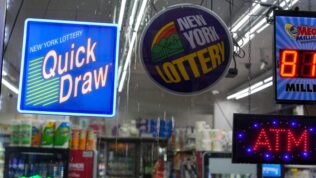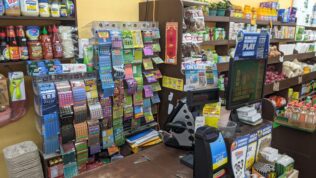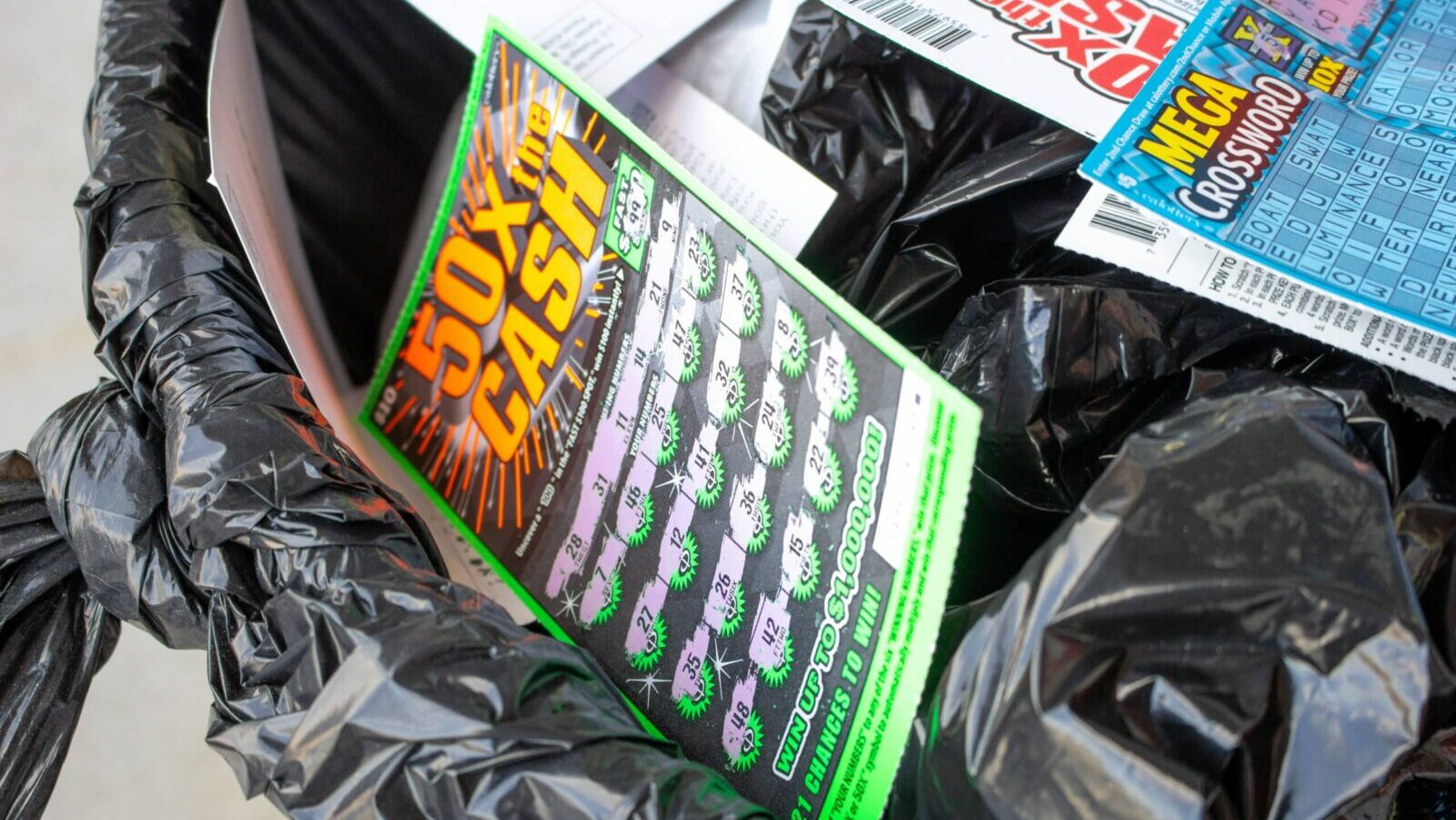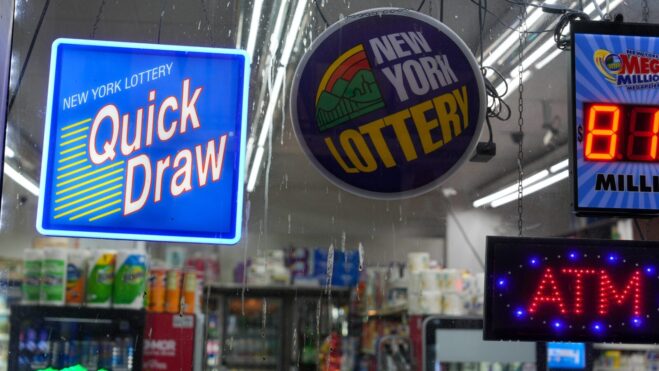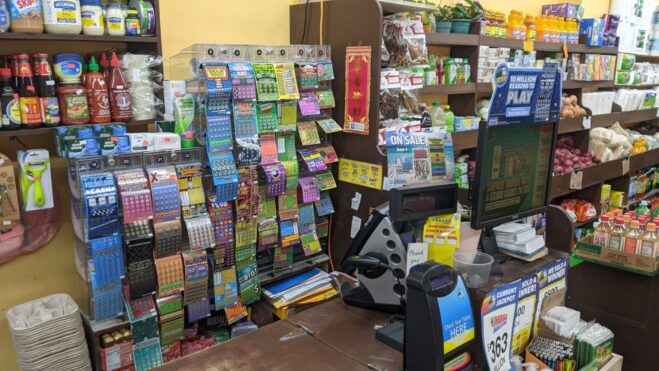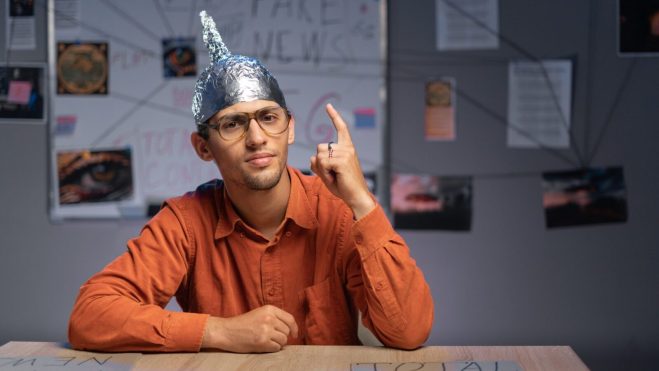Connecticut Lottery’s Andrew Walter Talks iLottery Launch, Partnering With Fanatics Sportsbook, And More
"The lottery is almost 52 years old, so to be able to sell some of our products online ... it's a long time coming and we're excited."
12 min
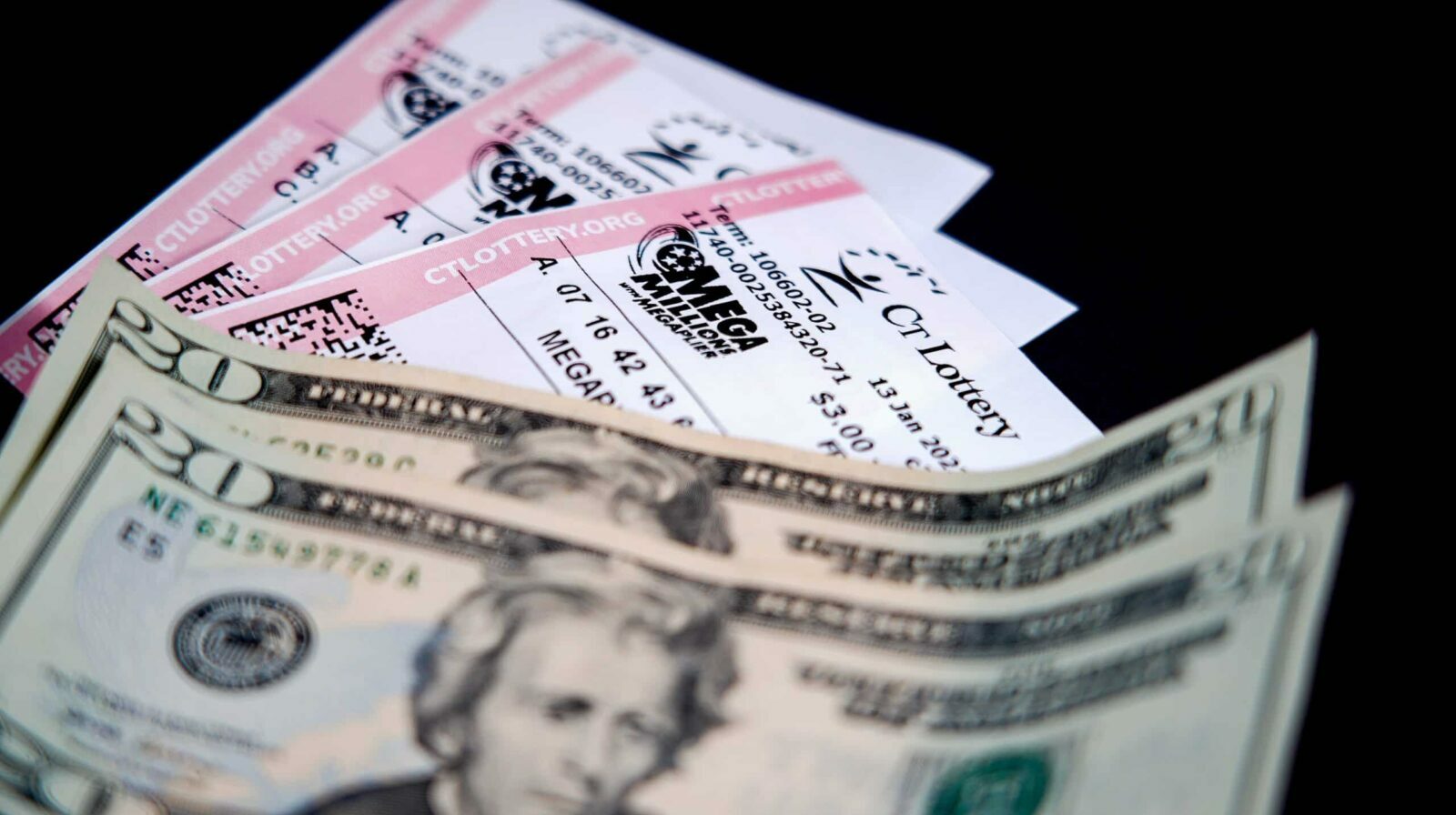
Connecticut certainly doesn’t have the reputation of Nevada or New Jersey when it comes to being in the conversation for “America’s gambling capital” status. But the southernmost state in New England has almost always been far ahead of the curve on legalized gambling. Its first tribal casino opened way back in 1992. It is currently one of only seven states that allows legal online casino gaming.
And it was one of the earliest states to legalize lottery play, first selling tickets in 1972.
The Connecticut Lottery Corporation is in a unique spot, holding one of the state’s three sports betting licenses in addition to operating Connecticut’s many lottery offerings. Andrew Walter, the CLC’s director of legal and business affairs for sports betting, sat down this week for a Q&A with Lottery Geeks, assessing the present and the future of the industry in his state and beyond.
Day-to-day duties
Lottery Geeks: Tell me a little about your current job and how it breaks down. How much of your focus in a given day is on lottery, how much is on sports betting, and is casino in the mix for you also?

Andrew Walter: A bit of a long answer. I worked at the Connecticut Lottery from 2012 up until around the beginning of the pandemic, in just a traditional legal role. And that was 100 percent lottery-focused. My title was just “counsel.” I actually ended up leaving in the middle of 2020 to go work at PointsBet. There, I ran compliance, anti-money laundering, and then got a responsible gambling program off the ground. And although I loved that job, it was just like all the other operators — it was really tough work, really long hours. And while I was there, the expanded gaming legislation passed in Connecticut, and the lottery got one of the three licenses, or skins. So I came back in the middle of 2021 to run sports betting for the Lottery.
So the answer to your question is, now my position is almost all sports betting, 90-some percent sports betting. I do know the lottery really well because I do interface with almost all of our departments, whether it’s marketing, our security and compliance departments — I still work with a lot of the same people that I used to work with, it’s just now pretty much my sole focus is sports betting.
As for online casino, I sure wish that was in the cards but I just don’t think there was a scenario where our casino competitors in the state were going to give up their quote-unquote “exclusivity” to casino games, and that extended into this online world that we’re now in. The way that bill shook out, we all operate under the same structure for online sports betting. The lottery has a unique offering for retail, which we’re still working on, and, actually, just as of [Monday], we’re in a soft-launch period for our internet lottery, which passed in that same legislation. So, we have different offerings and we won’t have casino, but I think we’ll do just fine and certainly the internet lottery program that we have will be very lucrative in the state.
LG: Since you mentioned, I had seen reports that Connecticut iLottery was expected to launch this month. You just said you’re in the soft-launch phase. So, what can you tell us about the timeline and about what remaining steps need to be taken to make the launch happen?
AW: Some lotteries are self-regulated. We’re not one of those lotteries. All gaming in the state is overseen by the State of Connecticut Department of Consumer Protection.
So, much like we did with online sports betting, the internet lottery team here and with our partner IGT had a soft launch. Basically what’s going to happen is the first seven or so days of sales are in a controlled environment, meaning limited number of customers, limited number of hours of operation, heightened reporting, morning meetings with the regulators to make sure we are all catching anything as it happens, that kind of stuff. And I’m happy to not be involved in it because, just like sports betting, it’s quite an undertaking.
But, I have every expectation that soft launch will go well. It’s something we’ve been waiting quite a while for, so we’re looking forward to having that in our portfolio. The lottery is almost 52 years old, so to be able to sell some of our products online in the traditional lottery sense, it’s a long time coming and we’re excited.
LG: As you said, it’s been a long time coming. Online lottery was legalized in Connecticut in 2021. What caused things to move at such a deliberate speed?
AW: It’s not my project, so I won’t comment on it extensively, but the truth is that online sports betting is a faster product to stand up. You can go from zero to standing up in internet sports betting in a few months in many states. And that simply is not the case with online lottery. With online sports betting, the major players now have the same app in every state, and then they make adjustments on a state-by-state basis. For internet lottery, this was a custom-built app for our unique bill that passed. Meaning, it’s not every single lottery game that we have. We don’t have eInstant tickets, for example, but it’s our draw games — Powerball and the Mega Millions, and the draw games that are offered only in Connecticut. So, after a long procurement process to find a vendor, that vendor had to start from scratch and create a bespoke app for this. It’s unlike most universal online sports betting apps, which are wonderful, but are something that is just customized for each state’s requirements.
The cannibalism question
LG: We recently posted an article about whether online sports betting is good or bad for lottery, and you responded on social media, and one thing you said is that there’s no evidence that online sports betting cannibalizes brick-and-mortar lottery. Can you expand on that? What is the interplay between these two verticals?
AW: To be fair, all of this is still really new. I think the analogy that we’re still in the top of the first inning for legalized sports betting in this country is still a fair statement. That being said, online sports betting and retail sports betting are primarily event-driven, right? We see the ebb and flow of sales from when college football starts to when March Madness ends, we do the bulk of our top-line sales there, and those sales are driven by events. Football on Saturdays and Sundays, college basketball when it takes place, etc. And we just haven’t seen, since launching this, cannibalization of our brick-and-mortar traditional lottery sales that we could attribute to sports betting being legal. It simply hasn’t happened yet. And I haven’t seen or heard from my friends or counterparts in the lottery industry that they are taking a beating on their sales as a result of sports betting being legalized in their states. It’s not to say that it’s impossible or won’t happen. But I think if we’re going to see it, it’s going to be from online casino, because that is not event driven, since, of course, you can create a hand of blackjack at 3 in the morning if you want to.
LG: The statement that got everyone’s attention on this topic came out of Massachusetts, where was a suggestion of cannibalization of brick-and-mortar lottery from the launch of online sports betting. Did you have a specific rebuttal to that statement?
AW: What I think they are trying to do, which they’ve been trying to do for several years now, is to use these discussions about online sports betting or online casino as their vehicle to introduce internet lottery, which is the tactic that they have to take if they’re not going be participants in sports betting or online casino. If you look back, that Lottery or the treasurer’s office in Massachusetts has been making comments about internet lottery being necessary for them to compete in the 21st century for at least five years. So when these online casino or online sports betting bills get introduced, I think it’s incumbent on them to try to protect the massive revenues that they’re generating for the commonwealth by either pointing to a potential risk of cannibalization or by saying if you’re going do “X,” then also legalize internet lottery because that’s their opportunity to compete.
You’re seeing this in some other states too, it’s “don’t forget about the lotteries,” because more than the brick-and-mortar casinos, more than the racetracks, lotteries traditionally generate more tax revenue than the other gaming providers in states. So it’s simply, don’t forget about us, the state lottery, when you’re modernizing these other, mostly private entities.
Online lottery services … of a sort
LG: One major online innovation in the lottery industry in the last few years is the courier services. What’s been the impact of these services on the U.S. lottery industry in your view, and is their impact mostly felt in states that haven’t legalized iLottery?
AW: I think it’s exactly what you just said there. There’s no doubt at this point that the courier impact is positive for lotteries. Not in a negative way, but it’s an end-around to internet lottery sales, meaning, most state lotteries are going to need some kind of legislation to pass actual iLottery where there’s this seamless experience, there’s no ticket printed, etc. The courier model is one step short of that. And I think the beauty is, from a player perspective, you’re still ordering your ticket on the internet. However, it’s being printed by one of these companies that then becomes a brick-and-mortar retailer, Jackpot or Jackpocket or Lotto.com. They’re still doing the physical printing of the ticket. So it’s not technically an internet lottery sale. And then they’re paying most prizes right back into your player account, unless you win big, and in that case, you’re happy to come to the lottery. So if you’re a lottery in a state where it has been difficult to get legislation passed for actual internet lottery, this gives you a way to be relevant and to have an online presence even though it’s not something you directly control or manage like iLottery.
And one other thing that has been mentioned to me is that the major companies that are doing the courier service are spending large sums of their own money advertising our lottery games like Powerball and Mega Millions. They’re marketing our products, too. Obviously, we want them to do it in a way consistent with the way we operate. But at this point, they’re pretty well versed in the responsible gambling practices.
LG: Since you mentioned responsible gambling, that’s a topic you don’t hear as much talk about with lottery as you do with sports betting, casino, etc. Do you think there’s a perception that buying lottery tickets isn’t an addictive form of gambling?
AW: I think I would disagree with the first thing you said there. Most lotteries that I’m aware of, and I would especially include the Connecticut Lottery, are very, very active in the responsible gambling community. It’s just different than with online sports or casino operators. And one of the reasons is, we are the state. So we don’t want to take actions that negatively impact people, even understanding in every single state that there’s a small percentage of people that will have some form of gambling addiction. So, to that end, most lotteries are accredited by responsible gambling groups, and it’s not just paperwork, you have to show that you actually have a program that you are engaged on. We meet with our state’s nonprofit problem gambling or advocacy associations on a regular basis, and we provide significant funding. When possible, we also incorporate feedback that they’ve received from their constituents. Gambling operators in the state, we all use the same uniform messaging so that regardless of where you are in the state, if you are engaging in legalized gambling, you’re seeing the same problem gambling helpline number, you’re seeing the same logo. So we do a number of things just in our existing brick-and-mortar business that really evidence that we do take this seriously.
But I think one of the other things you’re getting at is it’s just a fact that with online sports betting and online casino, there are additional opportunities from a responsible gambling perspective. The player is no longer anonymous. It’s very difficult to place somebody going to one of our 2,800 retail lottery locations. However, once you make that account online, the operator knows who you are, and that’s where self-exclusion, deposit and spend limits, timeouts, all those things come into play, which are absolutely wonderful additions. And I know all the operators here take that very seriously. Those responsible gambling tools just don’t exist in the same way at brick-and-mortar. So, I wouldn’t call it a disconnect, but I think that’s the difference between the two marketplaces of anonymous brick-and-mortar versus heavily, heavily regulated online play by known customers.
LG: I wasn’t asking so much whether the lottery industry itself takes RG seriously. Obviously you do. It’s more, from the outside, I feel like I don’t hear as much talk about it with regard to lottery as with the other verticals.
AW: I think you’re right, and there’s probably a couple of reasons for that. Just to answer for Connecticut, one, everything that I just described for you, we’ve been doing it forever. So, there’s not press releases every time we do something, because having a robust responsible gambling program is just second nature to us. Also, lottery is a cash-only business, where every time a state enacts online sports betting, and there’s a discussion about whether credit cards are going to be accepted as a deposit method — that’s where those conversations come up. That’s where the operators talk about all these enhanced safeguards. That’s when the responsible gambling groups come out and say, “Think twice before you enact this legislation.” So I think it gets a lot of attention because it’s new, right? Because of this idea of being able to fund a wallet online and gamble online and, especially with online casino, just the volume of money that’s going through that, that’s all new. So I think it gets a lot of attention, probably good and bad, just because these are new conversations.
Battling with the big boys
LG: On the sports betting side, you’re partnered with Fanatics Sportsbook. We’ve seen in most states how hard it is for operators to compete, handle-wise and revenue-wise, with FanDuel and DraftKings. What is the goal in Connecticut relative to these two competitors that you’re up against?
AW: I’m not going quantify it in top-level sales or market share. But, Fanatics took over in the middle of December in 2023. So we have just about five months of sales with them. I’ll answer this by saying, after their ramp-up period the first couple of months, we’ve seen top-level online sales that exceeded what we did that corresponding month of the last year. So, March, April, and May, they’ve exceeded our performance with our former operator. So, number one, that’s what I’m looking for.
Number two, I think their brand speaks for itself. Yes, it goes without saying that in any state where DraftKings and FanDuel are, it’s going to be an uphill competition. However, in this state, there’s only one other license, right? So they don’t have to compete with 15 other sportsbooks or, you know, the 20-some that are in Colorado. I think having their brand and especially their rewards program, which incorporates their sports betting, their merchandise, and their collectibles verticals, it’s a top-notch rewards program. So I’m looking for intangibles and things that can be difference makers from them and that’s just one.
And I think the other way that we become more relevant is through our retail footprint. In most states, if there’s a retail sports betting opportunity, it’s usually limited — where a casino partners with a company and then they put one sportsbook in that casino, and that’s it. Our legislation allows the lottery to have 15 retail sportsbooks in this state, as long as we’re not close to the reservations. We’re live in 10 of them, and my major project is working on the other ones. All of those retail sportsbooks are also billboards for Fanatics Betting & Gaming. They are places where people can get retail rewards. They are places where people can scan codes and create online accounts. They are places where we’re going to do events during the football season, giveaways and things like that. We’ve barely even scratched the surface of this with Fanatics because it’s so new. But, having 15 retail billboards around the state that scream Fanatics Betting & Gaming, that’s a big market advantage for us.
LG: What sorts of venues are the retail sportsbooks in?
AW: Most of them are with our partner Sportech, who is the parimutuel operator contracted with the state. They’ve been taking retail horse bets in the state for several years now and they made a lot of sense to partner with. They have a couple premiere locations, one down in Stamford, called Bobby V’s. There’s a Bobby V’s up in Windsor Locks near our largest airport. And then they have some smaller locations in most of the larger cities in Connecticut. Those locations generally have done pretty well. We just opened a location in Bridgeport, at Total Mortgage Arena, one of the two arenas in the state, and we’re also in the XL Center in Hartford. So those round out the 10. Plotting out the other five, it’s a matter of looking where our large population bases are. And we’re looking primarily for partners that have an existing business as opposed to coming into a warehouse and building something from scratch. We’re looking for sports bars or places like that where people are going anyway to watch games, have a good time, and get something to eat and drink. Placing sports betting in there will be a nice addition.
LG: It sounds like the approach to the land-based sportsbooks for Fanatics and the lottery make for an effective differentiator from FanDuel and DraftKings.
AW: I think that’s exactly it. The betting odds, from one platform to another, they’re usually very similar, and the features on the apps are very similar. So we’ll look to differentiate ourselves where we can, whether it’s the rewards that I mentioned or this omni-channel approach. It’s no different than having some lottery products available online and then continuing to drive customers to retail. We have this omni-channel opportunity that we really just need to maximize over the next couple of years.


